Sabotage, Heresy, and Traps
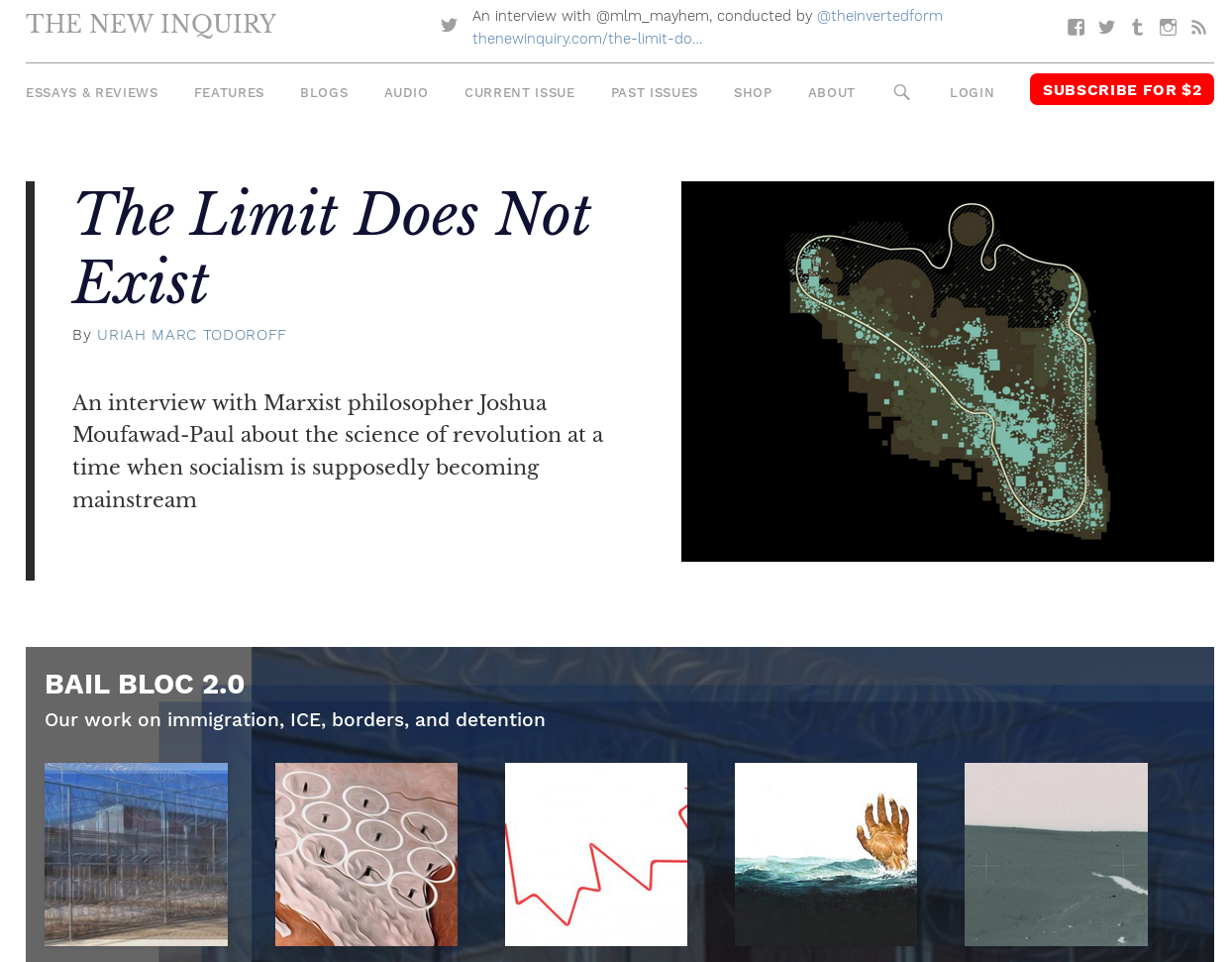
From 2016-2017 I was a co-publisher of the New Inquiry, a magazine of cultural and literary criticism. What I enjoyed as a reader was the magazine's unique combination of irreverence but also extremely sharp criticism, and that inspired a lot of my own perspective and work. While I was co-publisher we were thinking about how to translate this orientation beyond the form of the critical essay.
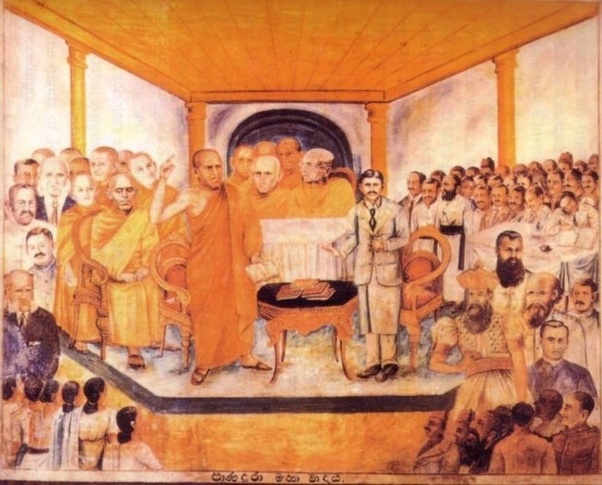
If we think about different forms of rhetoric, such as oral rhetoric, written rhetoric, and visual rhetoric, they all have different features that contribute to their effectiveness. Oral rhetoric, for example, has words, as well as the emotive features and gesture of the speaker, their intonation, eye contact, and so on. Visual rhetoric can directly use images and symbols that create an instantaneous impression that written rhetoric can't manage. It seems reasonable that software itself can also function persuasively, as a form of rhetoric, that has its own unique capacities these other forms don't have.
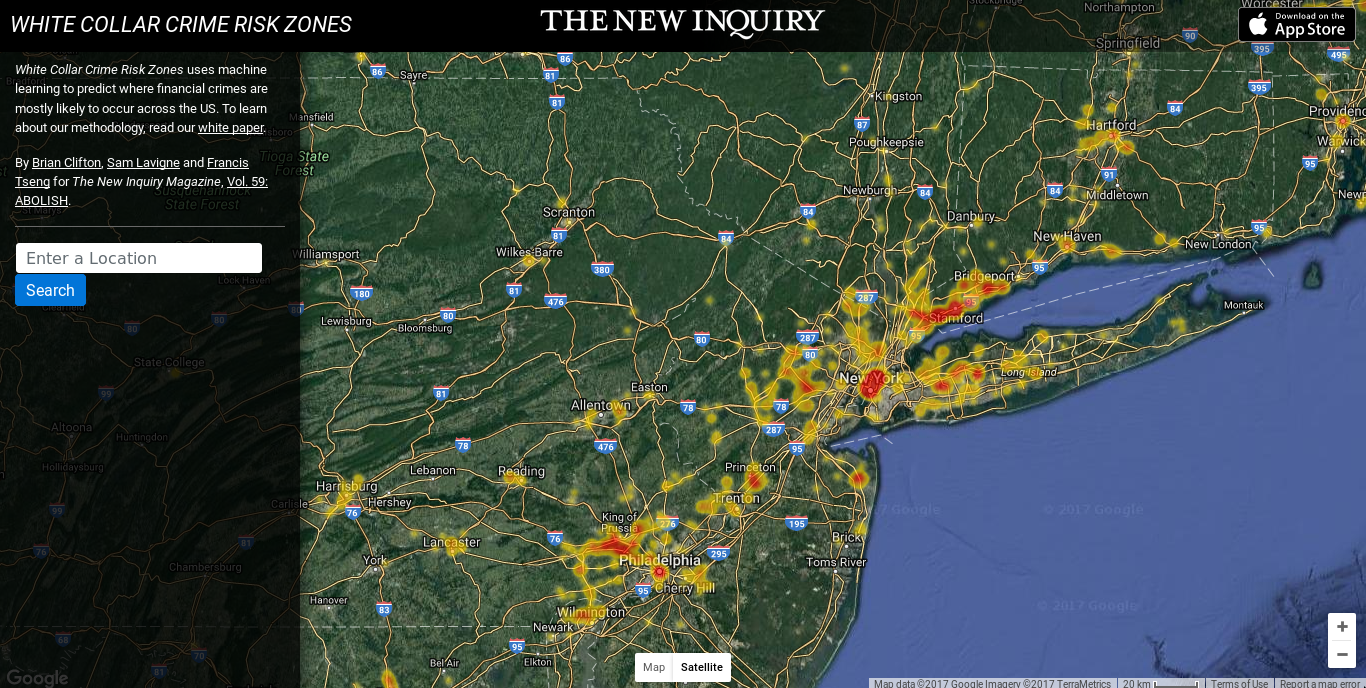
We called the work we produced there "rhetorical software". For example, we can produce software objects that are unsettling because they represent a contradiction in their existence. That's what we did with White Collar Crime Risk Zones, which is a predictive policing algorithm for white collar crime. Predictive policing exists to criminalize so-called "street crime", which basically amounts to criminalizing poverty, and a predictive policing algorithm for white collar crime is antithetical to this function. We know the biggest white collar criminals pretty much never see any consequences.

Software, in its interactivity, can provide an intuitive way to articulate and experience how systems work, demonstrating the outcomes of particular different structures and dynamics, as I did with The Founder. In The Founder you play a startup founder, and under investors' (and capital's) expectations that you grow continuously you inevitably create a dystopian world (though you, from your idyllic office, wouldn't really know). The point here is to show that these demands of growth and profit necessarily have harmful impacts.
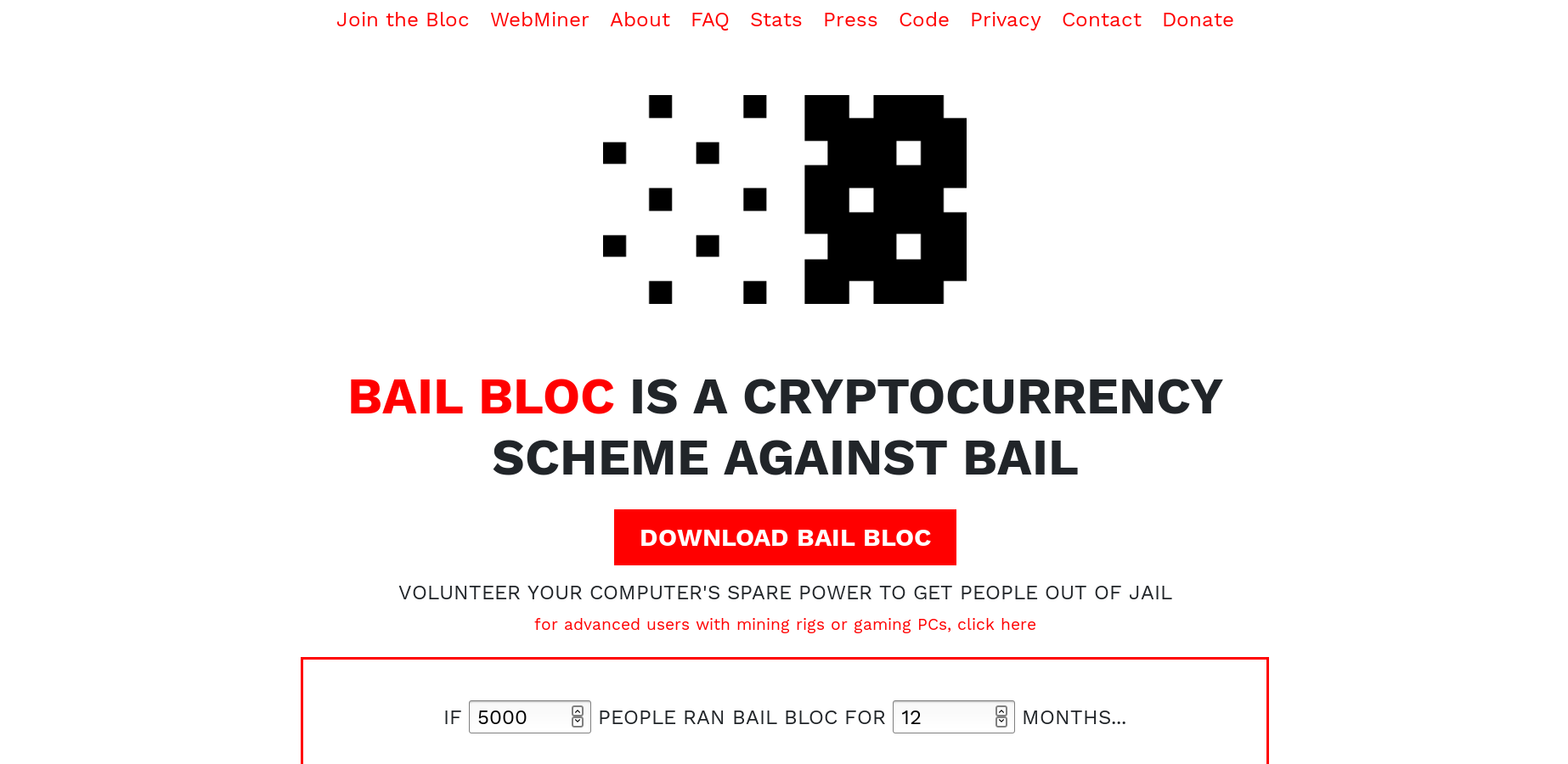
Since so much of the world is software, these projects could directly interact with digital services for a material effect, in addition to a rhetorical one. Bail Bloc is the last project I worked on at The New Inquiry; which provided a mechanism for people to donate computing power to raise money for bail funds. The idea here is to combine a critique of incarceration with software that can actually bail people out of jail.
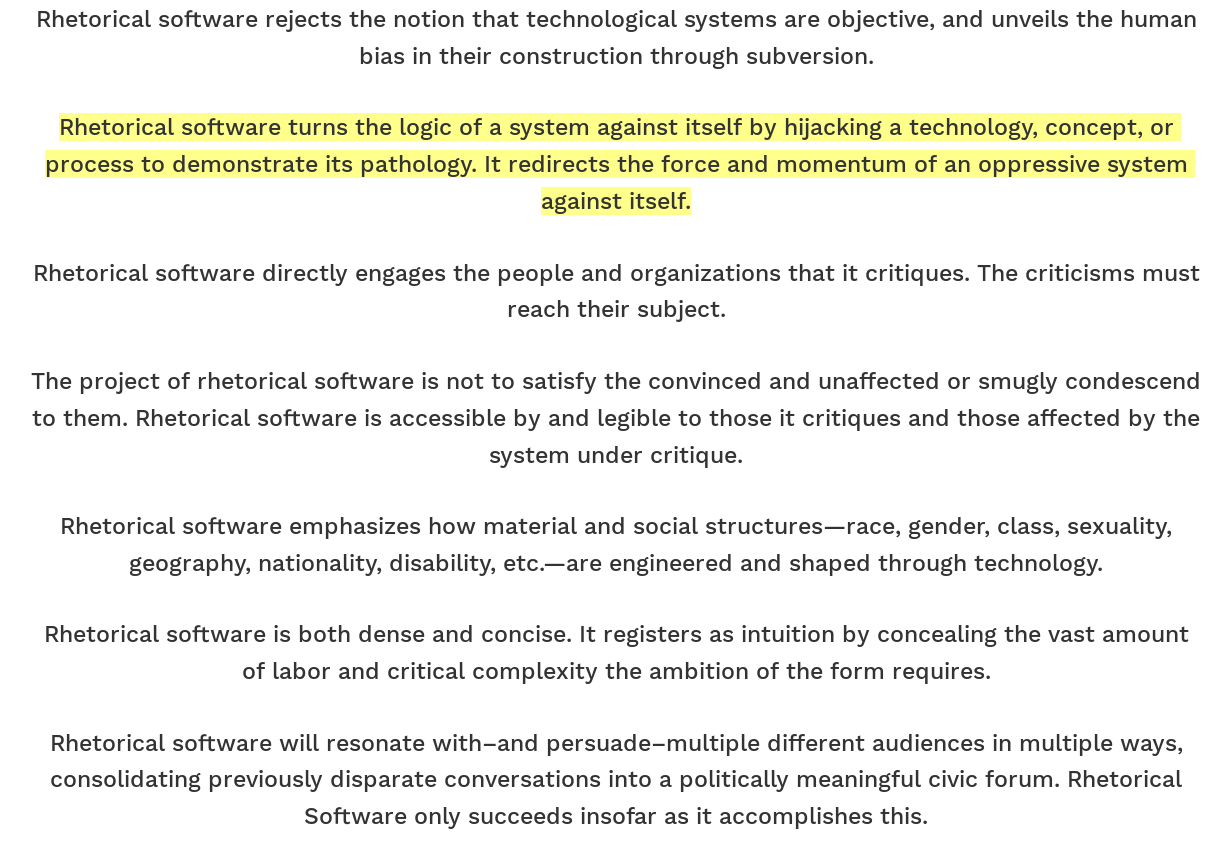
We codified these ideas into a list of desiderata and parameters for a "rhetorical software" project. The general idea of rhetorical software is to develop projects that merge criticism and direct action; they operate both rhetorically, presenting a critique, but also (ideally) have some material impact on the system that is being critiqued. This list of criteria is a bit idealized; it's rather tricky to hit all of them. But there is one part of it that is especially interesting to me:
Rhetorical software turns the logic of a system against itself by hijacking a technology, concept, or process to demonstrate its pathology. It redirects the force and momentum of an oppressive system against itself.
and I want to try to develop that idea further here.

The other inspiration for this talk by a more recent discussion about the "summer of scam" (e.g. Anna Delvey, Fyre Festival, Theranos) among the editors, titled "Scam or Die", that was part of the "Insiders" issue. One of the points in this discussion is that we are constantly embedded within a system of normalized, institutionalized, "sanctioned" scams, like nuclear families and health insurance and student loans, and what draws us to some popular scammers is that they seem to scam these institutionalized scams (the "system", i.e. a assembly of these sanctioned scams).
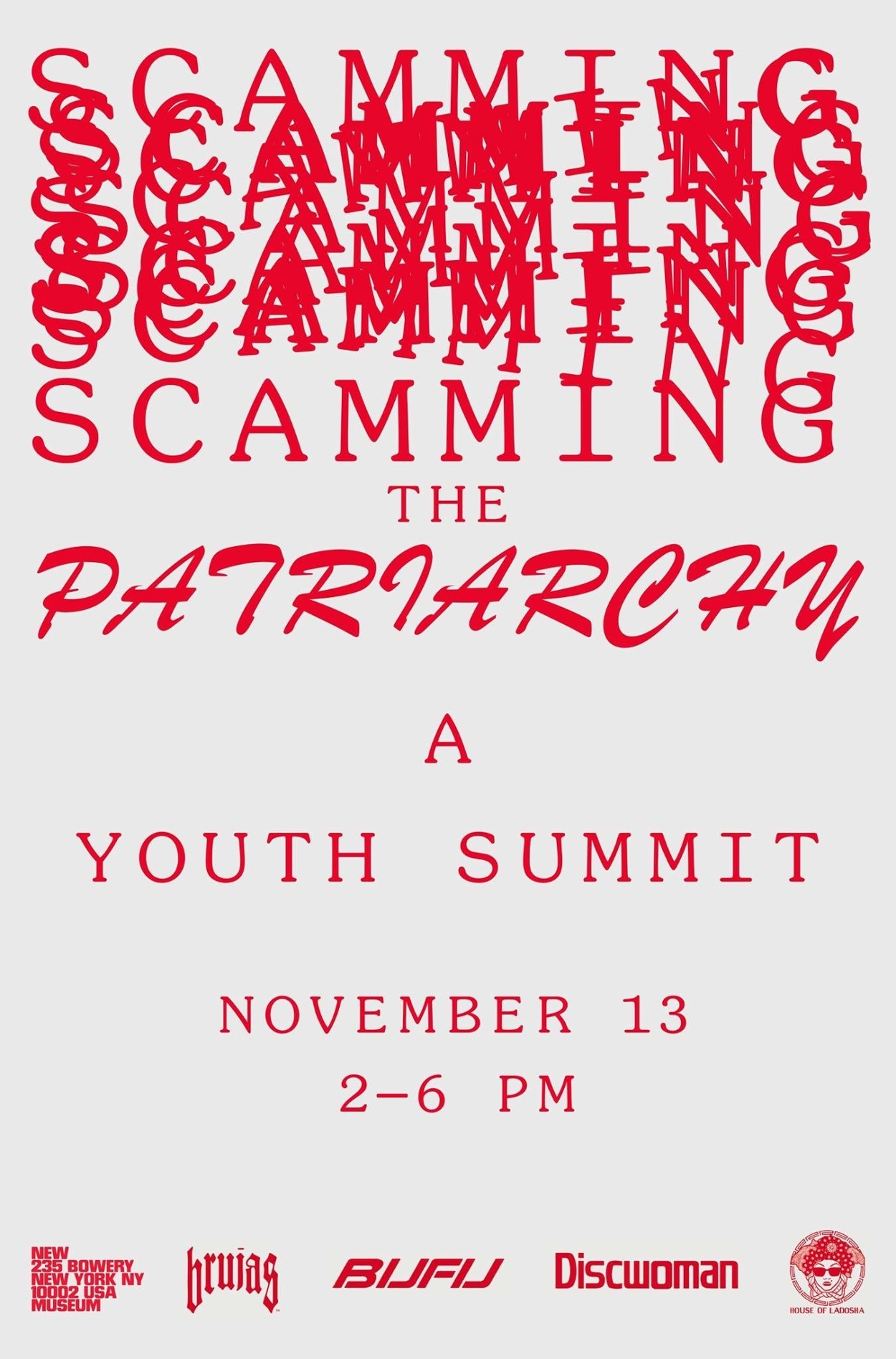
And finally, this talk is also inspired by BUFU's idea of "scamming", which frames scamming explicitly as a way of partially ameliorating injustices and inequities through a kind of subversive redistribution strategy.
Scams
Let me be a bit more specific about what I mean by "scam".
A scam is an exploitative and extractive relationship (relationship b/c it's meant to be established to continue indefinitely, as opposed to a one-off event) where one party (the exploiter/scammer) deceives the other (the mark). Under critical scrutiny, the basis of the scam (the deception) is found to have no rational justification.
Scams can be categorized by the power gradient they flow along. They are almost always top-down (i.e. they are instituted and maintained by people with power where the extractive relationships are instrumental in maintaining or intensifying that power). We can call these "oppressive scams". In contrast, we can call bottom-up scams "resistive scams".
Oppressive scams, like all scams, involve deception; for oppressive scams their primary deception is a legitimacy that is "natural" or justified.
Also: some scams are legal, some are illegal. And obviously there are scams which are straight up illegal; but the scams that are more interesting are the ones that are legal. Some are not merely legal but are in fact constituent of the law itself. "Institutional scams" are oppressive scams that are formally instituted via law or policy. For example, pre-trial detention and bail are institutional scams where the claim to legitimacy is to keep so-called "dangerous" people off the streets, which they in fact serve to put people in such desperation that they give up their right to a trial and enable and accelerate the process of mass incarceration.
Where are these oppressive scams headed? They are meant to extract time, money, life, over and over again until what?
Meta-scams
meta-scam -> target scam
A meta-scam is a scam which exploits an (oppressive, usually institutional) target scam against this typical power gradient, using scam-like mechanics to accomplish this. If we find ourselves in an oppressive extractive relationship, a meta-scam is us trying to find some wiggle room within the structure of the target scam to lessen, minimize, or even reverse that extraction.
Meta-scams too may be legal or illegal. Meta-scams that are legal are the most interesting. They play with the idea of "malicious compliance", i.e. following the letter of the law, but not the spirit. Some go even further, following the spirit of the law, but to ends that were not intended.
I want to go through a few meta-scams to flesh out this idea a bit more. The point of these examples is to draw out various parameters/dimensions and to aid in a process of designing more of these meta-scams.
Student debt
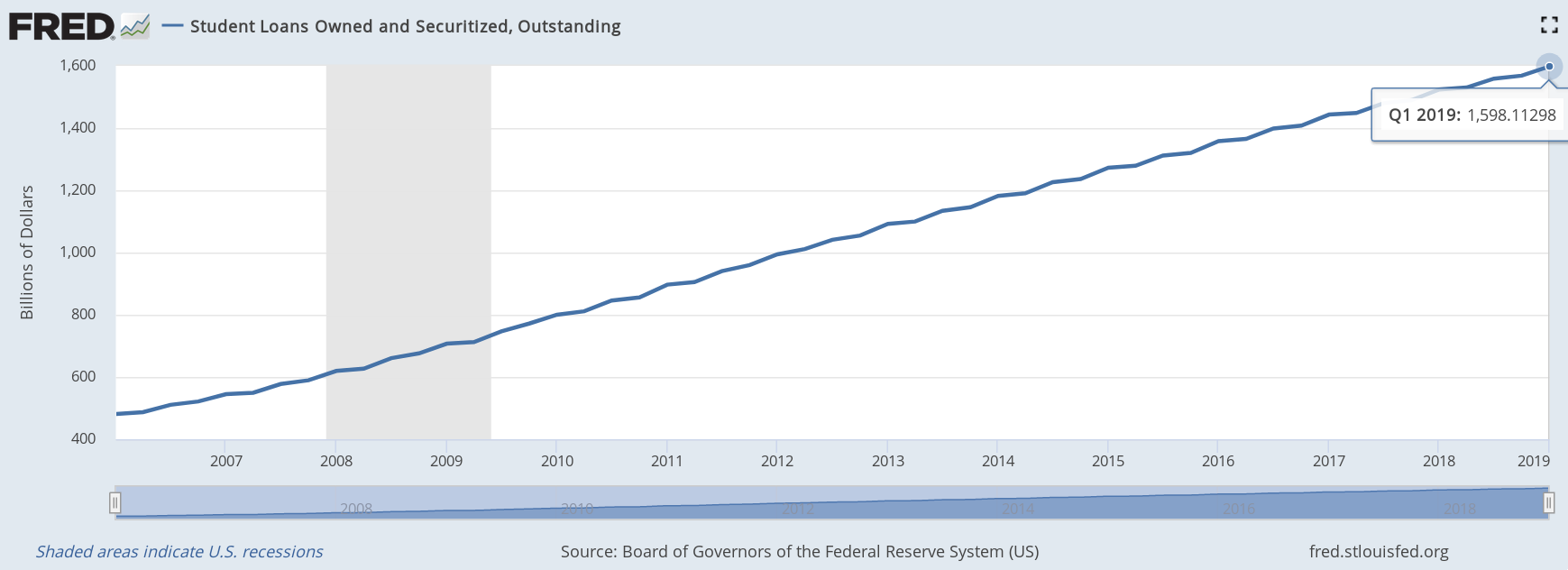
Education is so expensive in this country, and it's only getting more costly. If someone wants to educate themselves they have to resign themselves to a life where someone else entitled to a chunk of their wealth. All of the risk is pushed onto the student: you have no idea what the job market is like when you graduate, you have very little latitude to pursue a field you're interested in (unless you're drawn to STEM majors). But, as we saw with the recent admissions scandals, higher education's function (as we have it) may just be to buy a particular kind of (expensive) legitimacy.
In total, there's about
Today, the average college graduate leaves school
$30,000 in the red, up from $ 10,000 in the 1990s. Nearly one-quarter of borrowers are in delinquency or default.
Further, legislation that would relieve this debt burden is combated by interests who want student debt to remain a reliable asset.
Sources:
- https://studentloanhero.com/student-loan-debt-statistics/
- https://www.bloomberg.com/news/articles/2018-10-17/the-student-loan-debt-crisis-is-about-to-get-worse
- https://www.nerdwallet.com/blog/loans/student-loans/student-loan-debt/
- https://www.rollingstone.com/politics/politics-news/how-wall-street-profits-from-student-debt-225700/
Of course, debtors are interested in minimizing their losses; if a debt looks like it'll default, they'd rather sell it to a debt collector at less than its value rather than mark it as a complete loss. Then it's the debt collectors problem to get the person to pay up. Basically the lenders' desire to minimize loss creates a system where there is a market where debt can be bought for less than it's worth. Rolling Jubilee buys up this debt and then cancels it. The debtor effectively gets a discount on their debt. So far they've cancelled about
Rolling Jubilee is a meta-scam because it uses these dynamics of debt and profit against itself. But of course there are limits. People still make money off this system - it doesn't fundamentally change it. But it reduces pressure, gives breathing room.
Elizabeth Warren today just introduced a bill that would forgive up to
https://thehill.com/policy/finance/448498-warren-bill-would-forgive-up-to-50k-in-student-loan-debt

Uber is a scam, shifting as much as risk as possible to drivers and using legal tactics to avoid responsibility. For example, classifying drivers as contractors (or in their lingo, "partners") so they don't need to be paid minimum wage, benefits, overtime pay, sick leave, etc, and also requires drivers to cover their own costs such as maintenance and fuel. Another tactic that they use, which is by no means unique to them, is the inclusion of arbitration clauses in their driver contracts. Basically, as a driver you give up your right to sue the company in open court and instead agree that Uber will mediate disputes through a third-party of their choosing, and such disputes can only be carried out on an individual basis (i.e. no collective bargaining). Crucially, Uber covers the arbitrator's and arbitration fees.
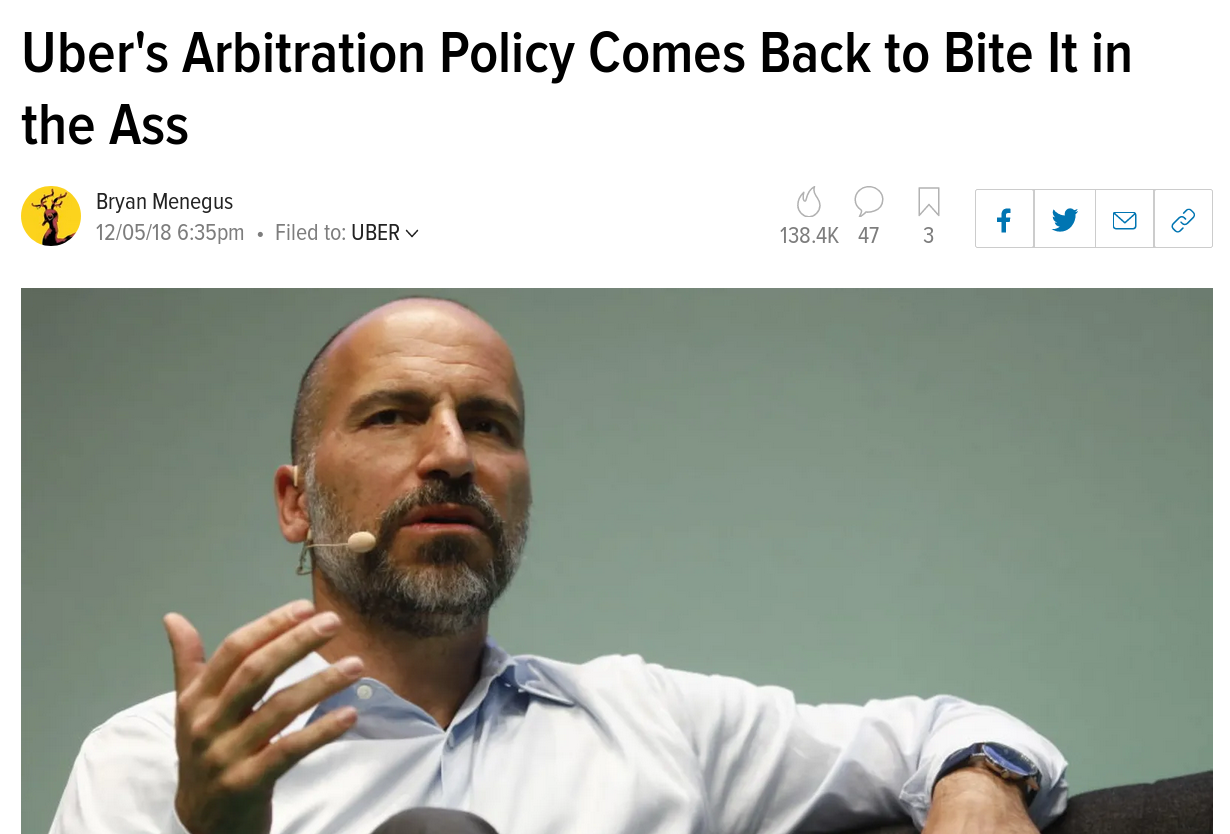
Drivers organized and turned this against Uber.
Quoting from the piece:
A group of 12,501 drivers opted to take Uber at its word, individually bringing their cases up for arbitration, overwhelming the infrastructure that’s meant to divide and conquer.
The arbitration service requires a non-refundable
This is in addition to an estimated $7,000/day for each case.
A similar tactic is being used with Lyft and Chipotle.
Sources:
- https://gizmodo.com/ubers-arbitration-policy-comes-back-to-bite-it-in-the-a-1830892372
- https://onlabor.org/uber-and-lyft-drivers-turn-the-tables-on-individual-arbitration/
- https://news.bloomberglaw.com/daily-labor-report/corporate-arbitration-tactic-backfires-as-claims-flood-in
- https://blog.cpradr.org/2019/02/15/more-on-mass-individual-arbitration-as-an-alternative-to-class-arbitration/
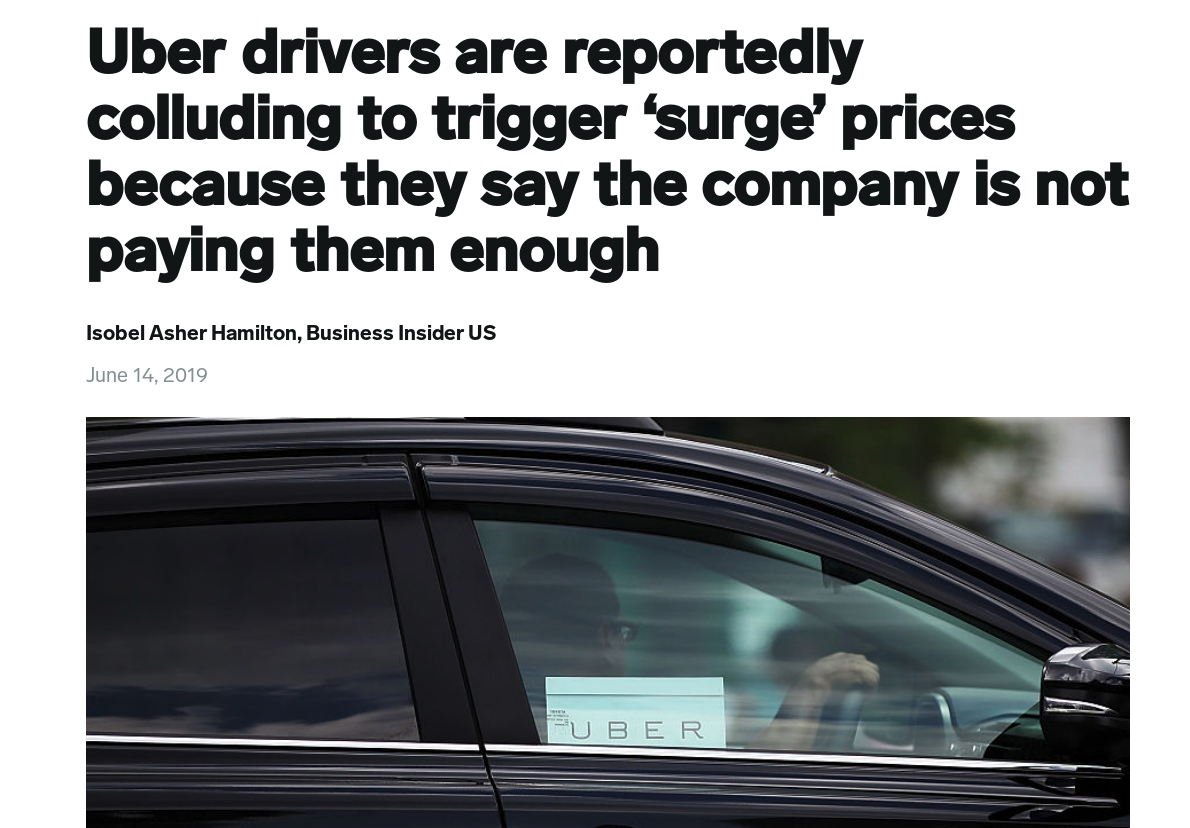
Another Uber-related example is collusion among drivers to induce surge pricing. This example is taken from a recent paper, Protective Optimization Technologies, which I highly recommend and is very much related to what I'm presenting here. Basically, drivers will collectively turn off their app to trigger a drop in supply, thus inducing surge pricing.
Here the drivers that are exploited by Uber find a way to increase their income, which is fair because of how much Uber takes (recently Uber cut the per-mile rate for drivers in LA by 25% and reduced the minimum fare payout by 30%...overall Uber takes almost 40% commission on average; in some cities this can go as high as 54%...this is before additional costs like maintenance that the driver is responsible for). But this is an interesting example because this scam actually benefits Uber but harms riders. So we might also want to consider the collateral damage of a meta-scam, on a spectrum from high precision (only intended targets are effected) to scorched earth (where damn near everyone else is impacted in some way).
Sources:
- https://www.ridester.com/uber-fees/
The pharmaceutical industry
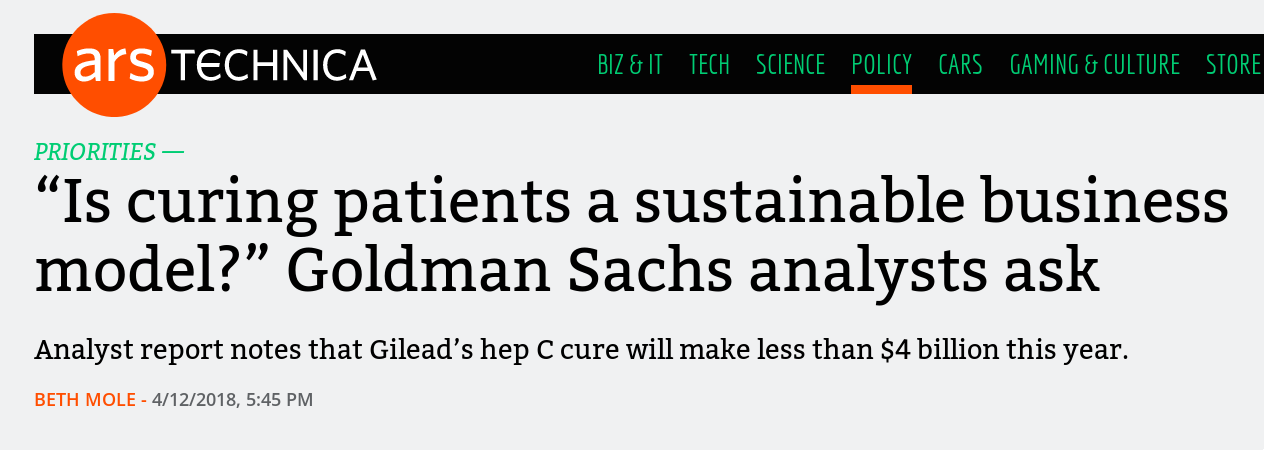
One of the biggest scams many of us are familiar with is drugs, by which I mean the massive $1.1 trillion pharmaceutical industry. If you're not personally familiar with how expensive drugs are in the US, you may have heard one of the many horrifying stories of people crowdfunding their continued existence or flying elsewhere to access more reasonable prices.
The answer in this Goldman Sachs report is "no". The report discusses a hepatitis C cure from Gilead, Solvadi, which costs $84,000 for a 12-week course. The report describes cures as effective as Solvadi (up to 97%) as bad for business since you cure yourself out of a market. Even something as common insulin can cost a significant portion of income, to the point where people die from needing to ration it.
This system is in large part maintained by our patent law system. The reasoning here is not only that drug development is expensive (it is, averaging about $2.5 billion per drug) but that it is necessary for drugs to be sold for profit to encourage development (putting aside the issue that then "unprofitable" diseases will never be treated under such a system, so-called "orphan drugs").
It's worth noting that prices can be high even for generics. For example, epinephrine - commonly known as an EpiPen, essential for severe allergic reactions - can be bought for about 0.10-0.95USD outside the US, whereas generics in the US can cost about $70.
Patents give exclusive rights to a company to sell a drug for 20 years and can be extended by "exclusivity" periods that add up to another 7 years. Drug development takes 10-15 years so they have at least a 5 year window to squeeze out all they can. Of course, there is a bag of tricks to extend these patents further, a practice called "evergreening", such as slightly modifying how the drug is delivered which allows it to essentially be re-patented. Purdue Pharmaceuticals, owned by the Sackler family (who are also prolific patrons of the arts), producers of OxyContin (accounting for over 80% of their sales last year), basically responsible for the ongoing opioid crisis (affecting at least 2.1 million Americans directly, and many more collaterally), and recently granted a patent for a drug that treats opioid addiction. The patented treatment is a small modification of an existing generic.
Even with high development costs, the pharmaceutical industry is tied with banking for highest profitability (as high as 43% for Pfizer), and further, the basic research that is foundational to drug development is paid for by public funds (some $100 billion from 2010 to 2016).
It used to be that inventions resulting from federal funding remained under federal ownership, but the 1980 Bayh–Dole Act offered businesses and other institutions the option to claim private ownership. The result is the public "paying twice" for these drugs. The Act does preserve "march-in rights" for the government, allowing the government to circumvent the patent and assign licenses independently if the invention is not made "available to the public on reasonable terms", but as of now these rights have never been exercised. In 2016 there was an unsuccessful attempt to use these march-in rights to lower the price of a prostate cancer drug called Xtandi, priced at $129,000/year.
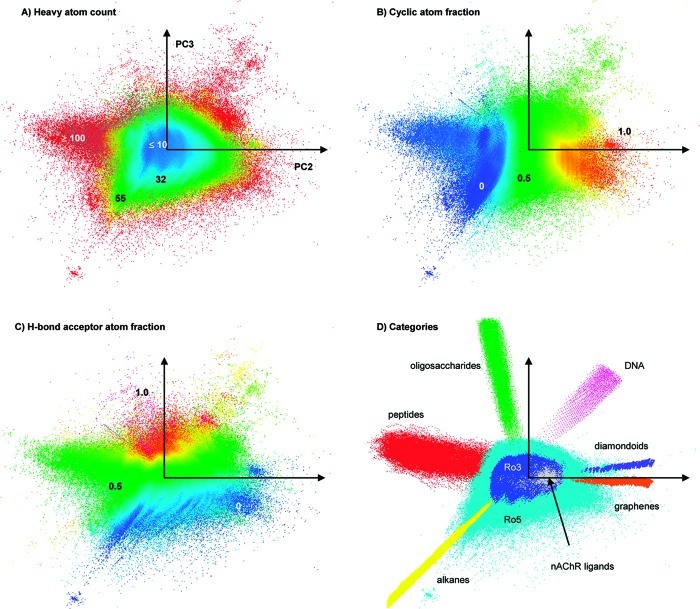
Drug discovery is an expensive process. The space of possible drug compounds is enormous, estimated to be between 10^60 and 10^63 compounds. For comparison, there are an estimated 10^22 to 10^24 stars in the entire universe, and an estimated 10^49-10^50 atoms making up our entire world. Say it took only a couple seconds to evaluate if a compound was a useful drug (compared to the many years it actually takes). Our sun would die several times over (taking about 10 billion years each) before you'd fully explore the space.
What pharmaceutical companies do instead is slightly tweak known drugs to see how their effects change, or look at plants and indigenous medical traditions for leads (this general practice is called "bioprospecting" and this particularly colonialist form is called "biopiracy").
With the expansion of machine learning, companies are also interested in computationally searching this space more efficiently. Maybe a computer can learn to propose new drugs with a high probability of usefulness, or even propose drugs to a specific disease.
Last fall Sean Raspet and I developed our own automated drug discovery system, which we called matter.farm. The idea is that it continuously proposes new compounds that could be useful, and guesses what they might be useful for. Crucially, these published compounds can function as prior art, which makes it more difficult for a pharmaceutical company to patent it (if it turns out on the off chance to actually be useful). The goal is to use patent law against how pharmaceutical companies use it and stake public claims in new, useful drugs.
I realize that this is maybe the only example here that directly exchanges with technology, which might be interesting in itself. Technology as we know it tends to intensify or institutionalize existing scams: it makes extractive relationships more efficient, expands their scope, and/or makes them more difficult to escape. It seems to function much like law in this way, formalizing extractive relationships, the oppression that enforces and maintains them, and operating with some presumed legitimacy (law under democracy that it somehow represents a consensus decision, technological systems under a regime of perceived computational infallibility)
From the perspective of meta-scams technology can help us violate the assumptions that some of these institutional scams are contingent on, like the ability for people without access to labs and significant financial resources to discover potentially useful drugs.
Sabotage & Heresy

So far these meta-scams are enacted by the marks of the target scam. The Uber arbitration meta-scam is enacted by the drivers who suffer from the arbitration clauses (and other extractive aspects of their relationship to Uber). But they may also be enacted out of solidarity by people who are instrumental to the target scam ("operatives", who don't necessarily benefit from the scam; this I call "sabotage") or even those who directly benefit from it (the "beneficiaries", this I call "heresy"). The space of intervention into a scam is quite different depending on your proximity to the scammer.
This example here is a man who presents himself in the least threatening way, as the post says, "the most non-activist white bystander in a suit with a bike look", and exploits this presentation and its relationship to policing and violence to give activists and protestors space.
Sabotage
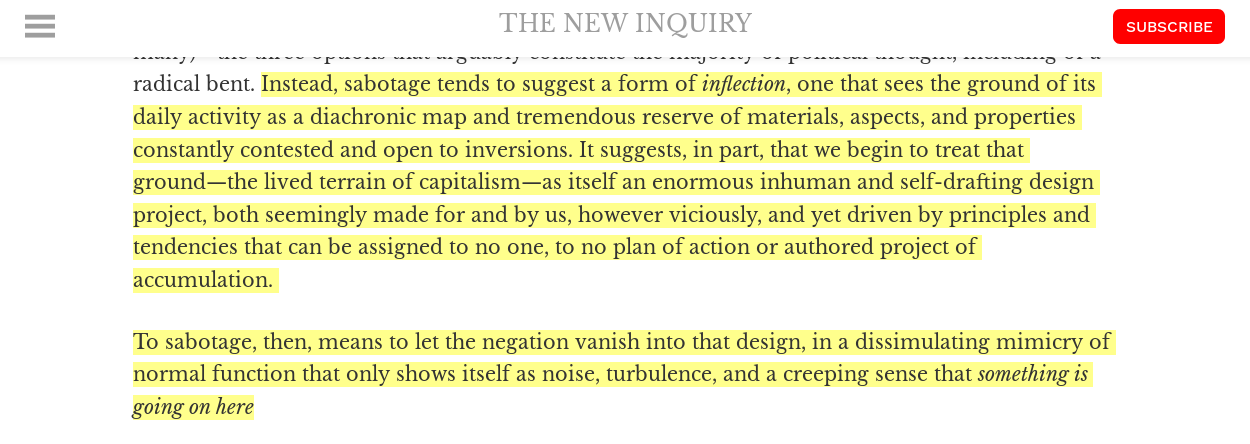
In addition to his relationship to the target scam, he also demonstrates a key aspect of sabotage.
Evan Calder Williams, in his essay "Manual Override", describes sabotage as such:
sabotage tends to suggest a form of inflection, one that sees the ground of its daily activity as a diachronic map and tremendous reserve of materials, aspects, and properties constantly contested and open to inversions. It suggests, in part, that we begin to treat that ground—the lived terrain of capitalism—as itself an enormous inhuman and self-drafting design project, both seemingly made for and by us, however viciously, and yet driven by principles and tendencies that can be assigned to no one, to no plan of action or authored project of accumulation.
To sabotage, then, means to let the negation vanish into that design, in a dissimulating mimicry of normal function that only shows itself as noise, turbulence, and a creeping sense that something is going on here
As a form, sabotage always maintains plausible deniability, walking a very thin line between the how a system is supposed to function and a reversal of that function.
Heresy
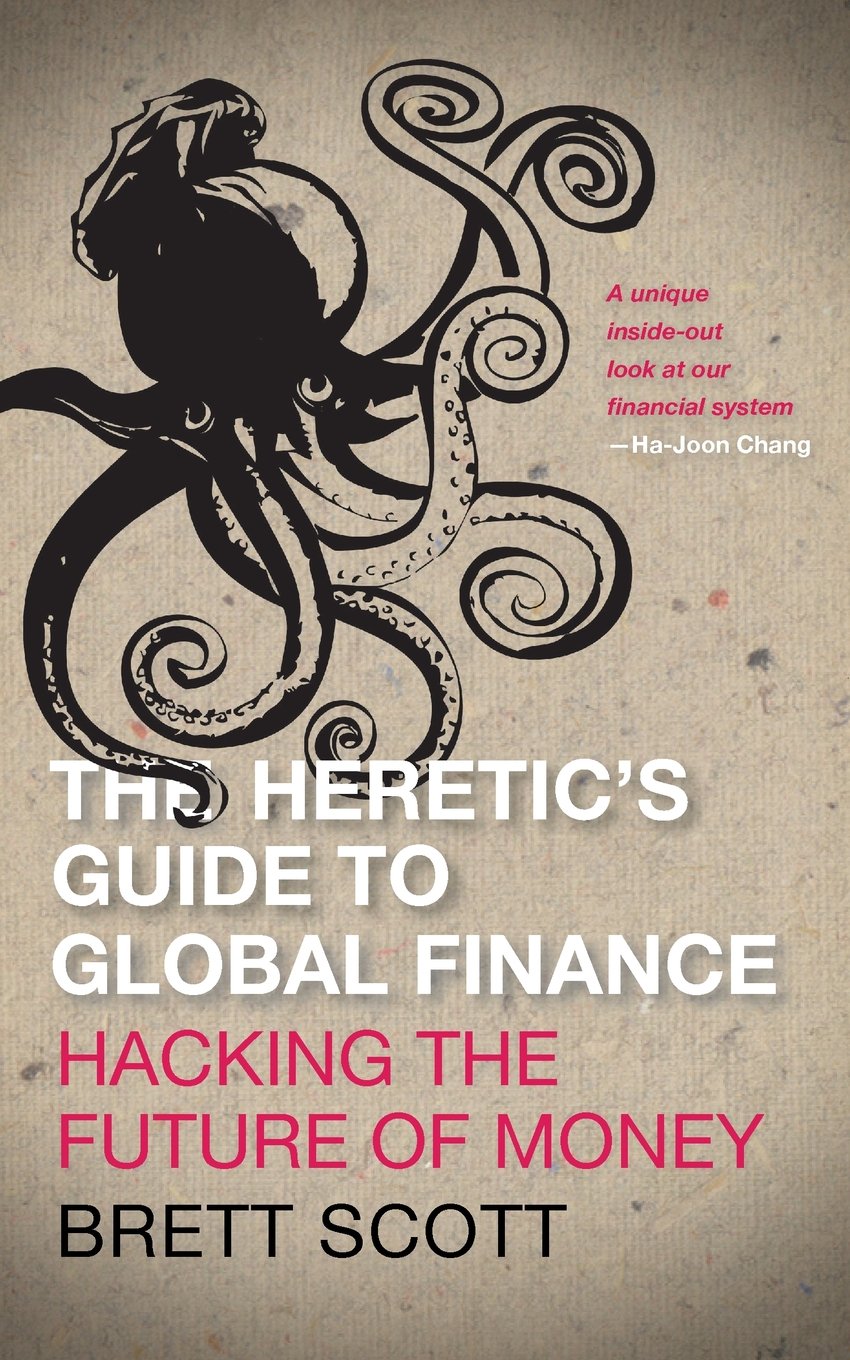
I use the term "heresy" as it's used in this book, The Heretic's Guide to Global Finance. The author, Brett Scott, works in finance in London, coming to understand both the culture of finance but also the mechanics it relies on, and aims to figure out ways to use it for more egalitarian and distributive ends. So "heresy" here means an insider (someone who benefits from the target scam) going out of their way to challenge it. There are two aspects in particular that are interesting about heresy: it is intolerable by the doctrine it challenges, even though (or precisely because) it relies on the same material as the orthodoxy and reveals how that the conclusions that are taken as inevitable from the source material (and that presumed inevitability may be all that gives those conclusions legitimacy) are not actually that. Second, I see heresy as something carried out by someone who typically benefits from a scam, but betrays it against their own self-interest. Whistleblowers like Chelsea Manning, who is still in jail, are an example of this.
Financialization
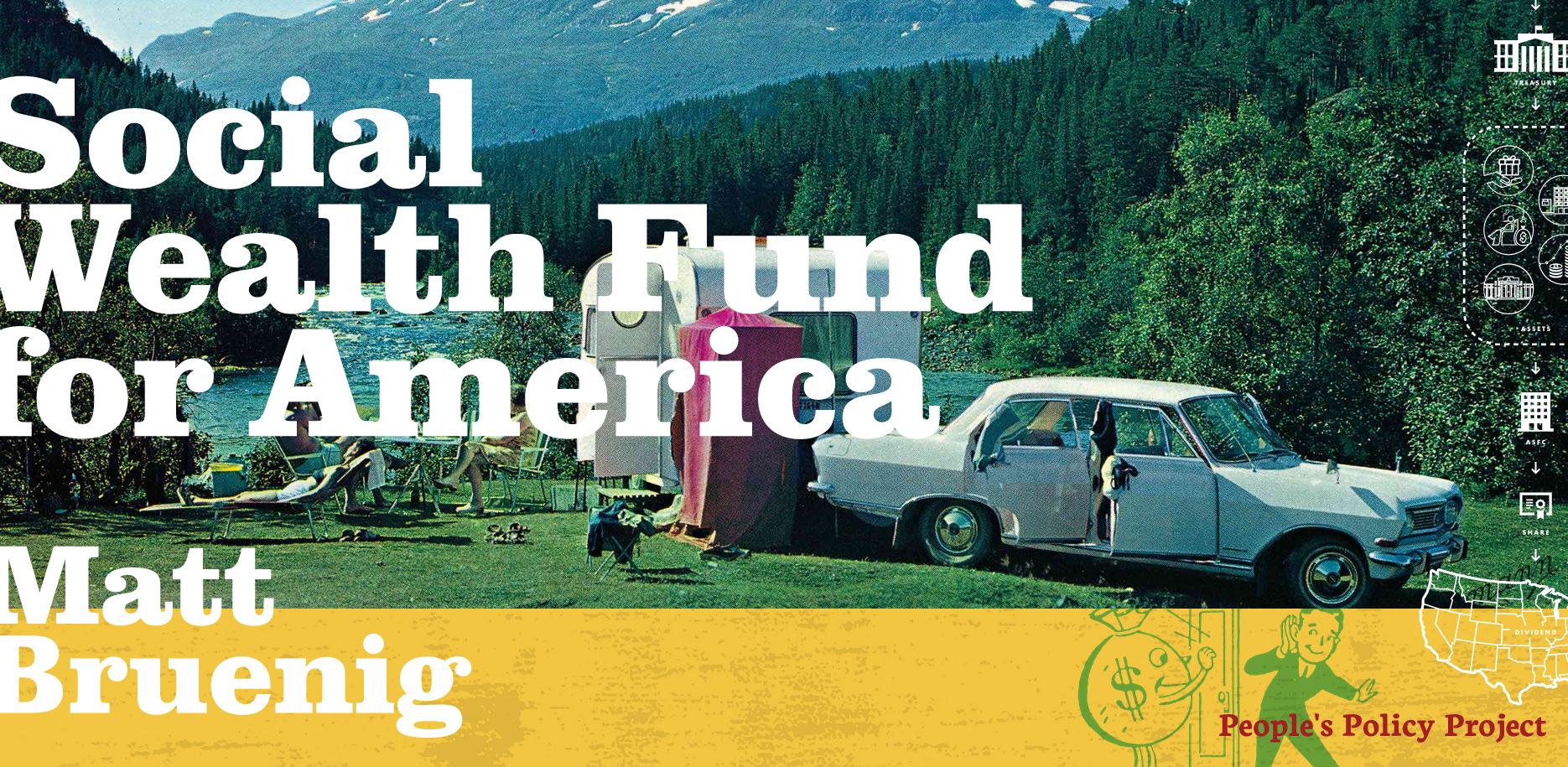
A key dynamic in capitalist economies is that the rich get richer. As Bruenig puts it:
Those with more wealth receive more income; those with more income save at higher rates; and those who save at higher rates accumulate a larger share of the national wealth. In other words, wealth begets wealth.
Sounds like a scam.
A key mechanism here is financial assets, e.g. ownership of stocks in companies. When those companies grow, that growth is accrued to shareholders, who are typically people with money; so the expansion of the American economy is captured by a relatively small group of people. And expansion of this financial logic is terrifying: more and more things are financialized such that they can be bought and owned by wealthy investors so that this capture of growth and income only intensifies. It is this very framework that makes it so more things can be owned and traded for speculative purposes.
Along these lines, Matt Bruenig and the People's Policy Institute propose hacking this infrastructure such that, instead of concentrating the benefits of growth to the wealthy, we use it to spread those benefits among everyone, in what he calls a "Social Wealth Fund". This isn't a new idea, Norway essentially has something like this. But the basic idea is that we create an index fund of every US company and then issue shares to every citizen, gradually expanding the size of the fund until the entire American economy is essentially collectively owned by the American people. A "universal basic dividend" is regularly paid out to supplement existing social programs, so national growth is distributed to everyone, and that as shareholders they may have more say in the company's operations.
Sources:
- https://www.demos.org/research/financialization-equal-opportunity
- https://www.peoplespolicyproject.org/projects/social-wealth-fund/
Extractive industry
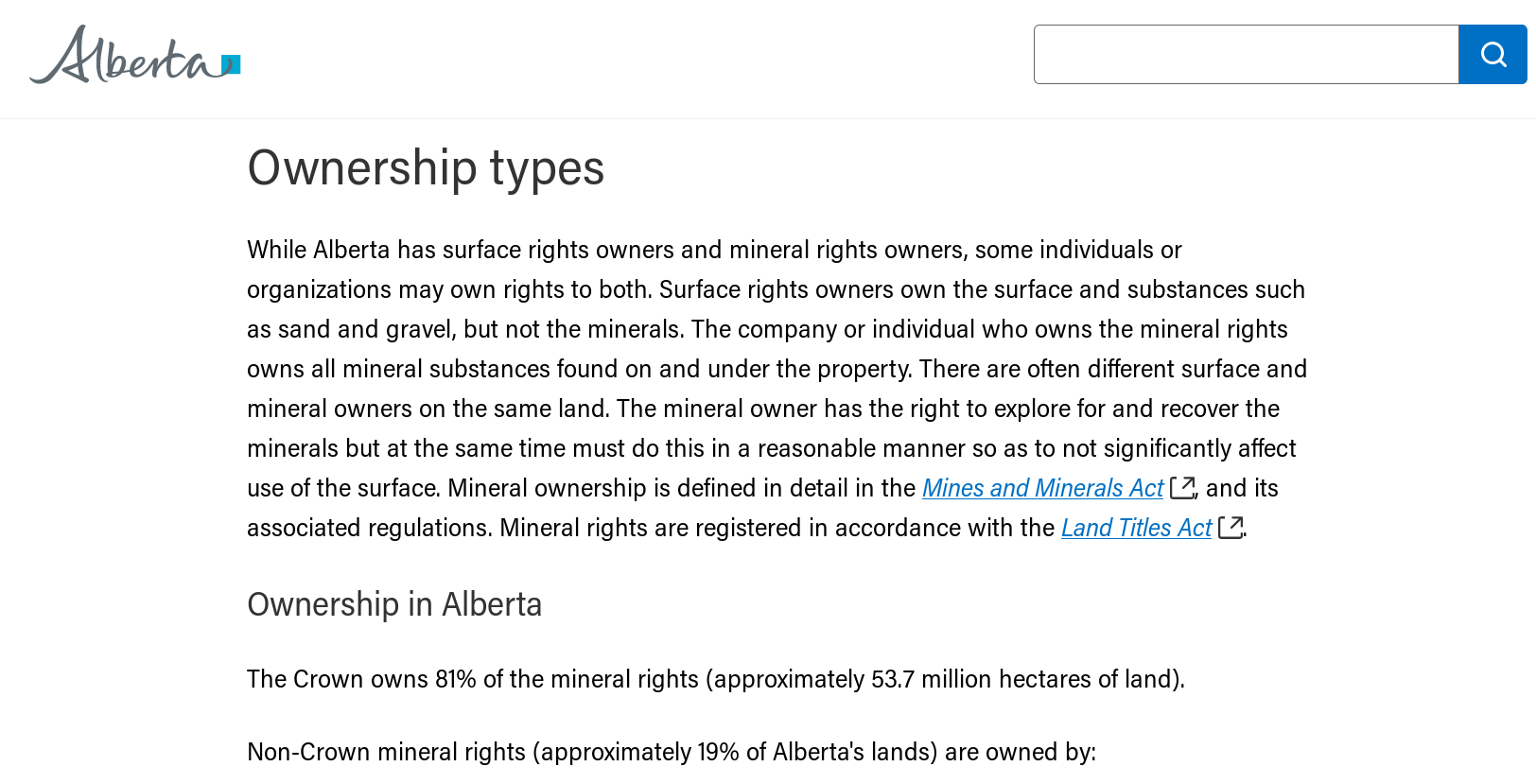
The previous examples all use logics and mechanics that are integrated into the target scam. Rolling Jubilee exploits how the business of debt works, the arbitration clauses are provided by Uber, who the police perceive as "respectable" or off-limits in terms of violence is structurally part of the function of the police, and using financialization, which is a way of expanding capital's reach and the ownership of the wealthy, to a completely antithetical end. These examples are what I would call "hijacking" because they take the structure of a particular scam and use it against itself.
I'll introduce a slightly different example now. Peter von Tiesenhausen is an artist who lives in Alberta. The land he occupies and owns happens to be upon a large natural gas reserve. He has what are called "surface rights", which under Canadian law means you own your land but only six inches into the ground. Anything under that is owned by the provincial government and can sell that subsurface land to, for example, a gas company to extract gas from, requiring him to move (so long as he is compensated).

What Tiesenhausen did was turn his property into an artwork, deploying copyright law to give him a stronger claim (raising the compensation requirement) to his land. He pitted two disparate systems of enforcement against one another to apparent success (I believe the gas company challenged his claim, I don't know what happened in the end).
This is what I call "scam arbitrage", turning one scam against another. This often seems to be more effective, because scams can interact in interesting ways.
Sources:
- https://preservethebeartoothfront.com/2014/06/18/a-personal-story-peter-von-tiesenhausen-demmitt-alberta/
- https://this.org/2010/04/22/peter-von-tiesenhausen-fights-oil-companies/
Climate change
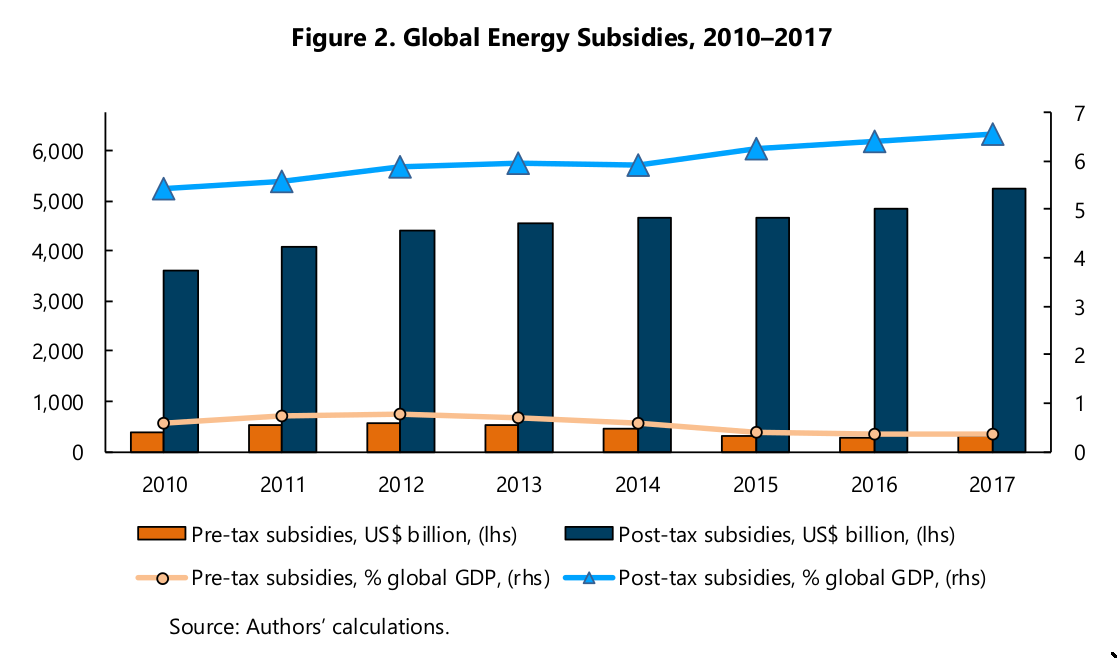
Oil and gas extraction is another scam we are all familiar with. A recent IMF report calculated fossil fuel subsidies to amount to
The rest of the subsidies are so-called "post-tax" subsidies, which represent the externalities from fossil fuels: pollution, carbon emissions, and so on. Basically, everyone in the world eats up the cost of that industry.
Sources:
- https://www.vox.com/2019/5/17/18624740/fossil-fuel-subsidies-climate-imf
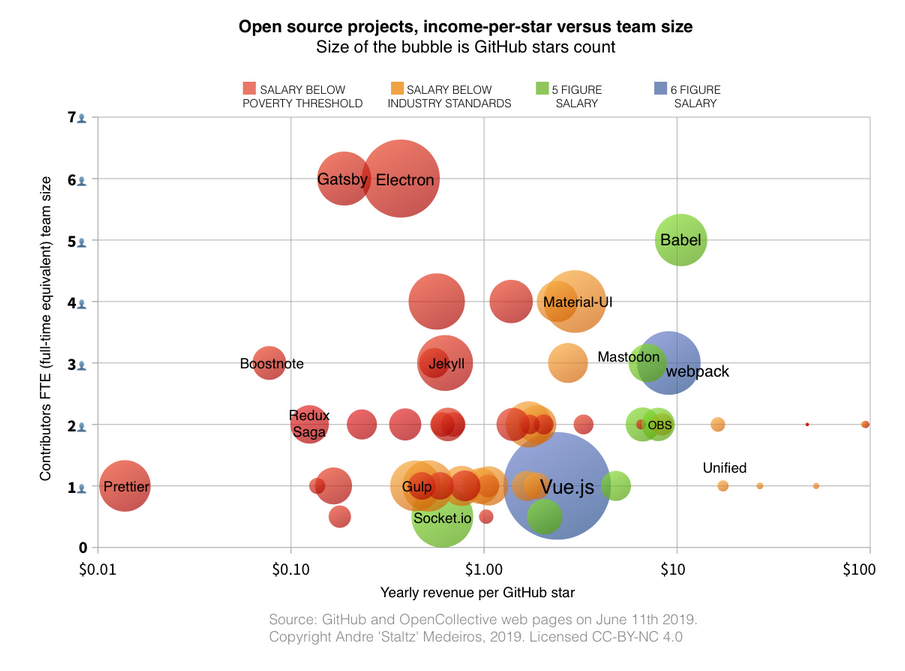
A huge ongoing scam is the relationship of for-profit companies and open source software. Open source software is foundational to companies with millions and billions of dollars, but open source developers rarely share in the value they create. In 2016, the Ford Foundation published a report by Nadia Eghbal describing how much of our "digital infrastructure" is open source and underfunded.
More recently (this week), André Staltz published an analysis of open source projects and their income from OpenCollective, which is sort of like Patreon for collectives, and found that "the majority (more than 80%) of projects that we usually consider sustainable are actually receiving income below industry standards or even below the poverty threshold". There are a lot of caveats that go with the analysis, but the general result confirms the broader issue of open source sustainability: "The total amount of money being put into open source is not enough for all the maintainers. ... The median salary is approximately

Companies like Amazon, Microsoft, and Google are expanding their business with the oil and gas industry to provide cloud infrastructure for locating and extracting more fossil fuels, contra much public imaging about supporting renewables and green energy. As quoted in this article, "using AI to find oil that wouldn’t have otherwise been discovered, when what we really need to be doing is leaving that oil in the ground." This involves providing, for example, the computer vision software to help identify deposits and the servers to run it on. Like pretty much any piece of software, this software and infrastructure relies on numerous open source libraries.
JS Tan approached me about developing an open source software license that specifically excludes use by oil and gas companies. We're working on developing this now, which we call the Climate Strike License. We are pitting the dependency of these cloud service providers scamming open source software against how oil and gas companies scam the rest of us through pollution and carbon emissions. The goal is to setup the license such that we can target key open source library dependencies and propagate the restriction up the dependency tree. If we can, for instance, convince maintainers of open source computer vision libraries to adopt the license, then we could complicate the deployment of these technologies for fossil fuel extraction.
ok, let's take a step back. There's an important issue that I haven't mentioned yet.
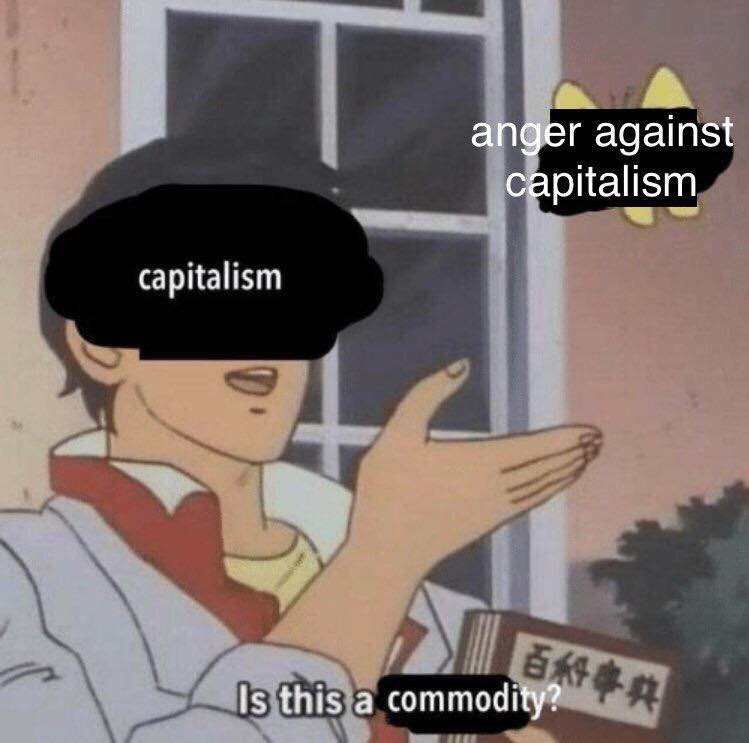
A concern with any kind of resistive action, movement, and so on is recuperability. How easy is it for the critiqued system to capture that critique and deploy it to its own ends?
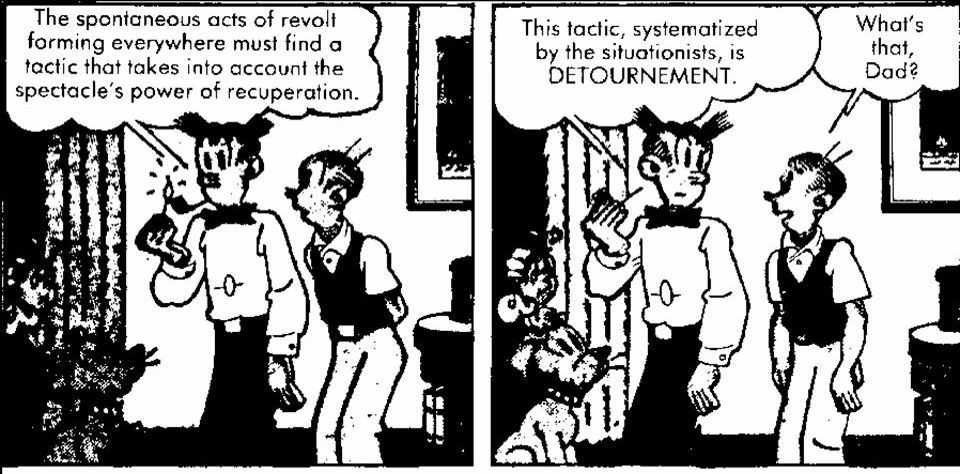
- détournement, associated with the Guy Debord & the Situationists, "hijacking", turning capitalist media infrastructure against itself, so using e.g. billboards to critique ads and appropriating the imaging and messaging of brands against themselves as well
- about resituating something something in a new context to change its meaning
- focus is on messaging, communication, rhetoric
- meant to be a reverse recuperability
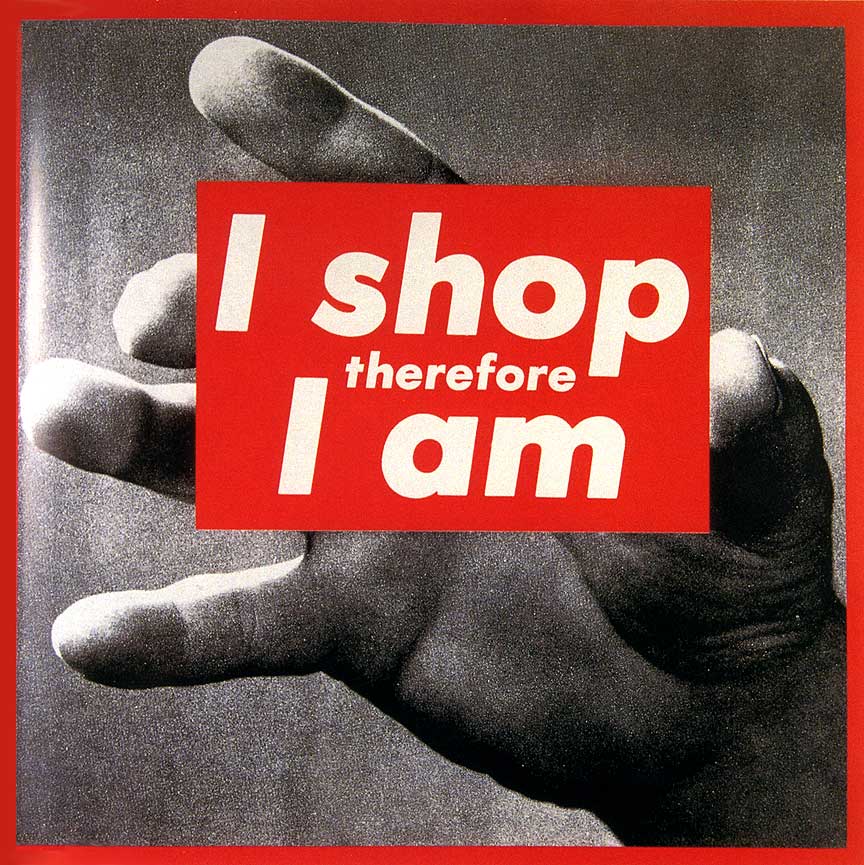
Barbara Kruger's work plays with marketing imagery in this way.

But her work was recuperated by global streetwear brand Supreme. The aesthetic of détournement, the "authenticity" it provides, is itself now foundational to a lucrative industry of creative and brand consulting.
There's all this infrastructure set up for the mass display and circulation of images under a broadcast model, for the purpose of marketing products and circulating ideas/values wrt to those products; let's use this infrastructure against this purpose. But if your issue is with the infrastructure itself, the mass circulation of images itself, then it may not help much there.
With respect to this concern I want to introduce one last form of meta-scam that is especially interesting. The trap.
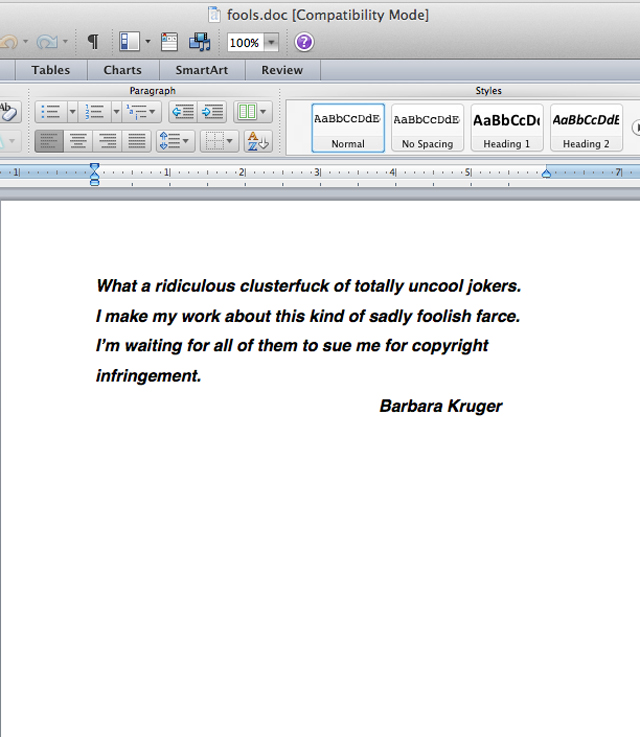

This is not the kind of trap I mean. It's not something that exploits someone's naivety or goodwill. And it's not a singular "gotcha" event, but rather a dynamic that is sustained.
...traps are “lethal parodies” of their prey’s behavior.
...a process by which sociotechnical structures are taken hostage by precisely what they make possible
- Maximum Jailbreak, Benedict Singleton
Benedict Singleton's essay, "Maximum Jailbreak", has some great descriptions of what constitutes a trap. I'm going to extend and slightly modify his definitions here.

A lot of martial arts have moves that exploit the momentum and strength of your opponent, turning it against them. Aikido in particular has "tenkan" movements which are led with "irimi" ("entering") movements. The more force your opponent attacks with, the harder that redirection hits them.

In particular, a trap is a meta-scam where intensification of the target scam leads to an intensification of the meta-scam. The harder you try to escape, the tighter the trap gets. Ideally until the death of the target scam.
In this way the meta-scam is more resistant to attempts to capture it.
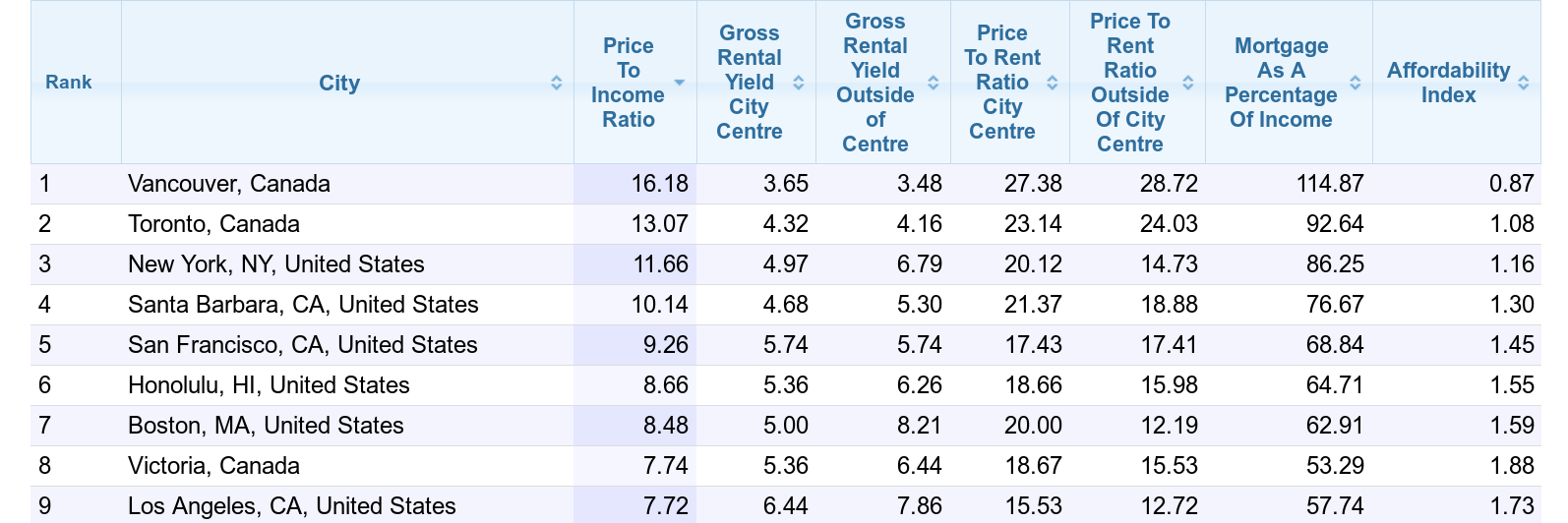
The term "rent poor" describes a situation where over 30% of your income goes to rent. In New York, the rent-to-income ratio is about 0.58, so 58% of income going to rent is typical here.
You can see that New York isn't even the worst in North America. Vancouver is closer to 60%. You see similar problems across the world...most of us are familiar with the fact that there is a global housing affordability crisis.
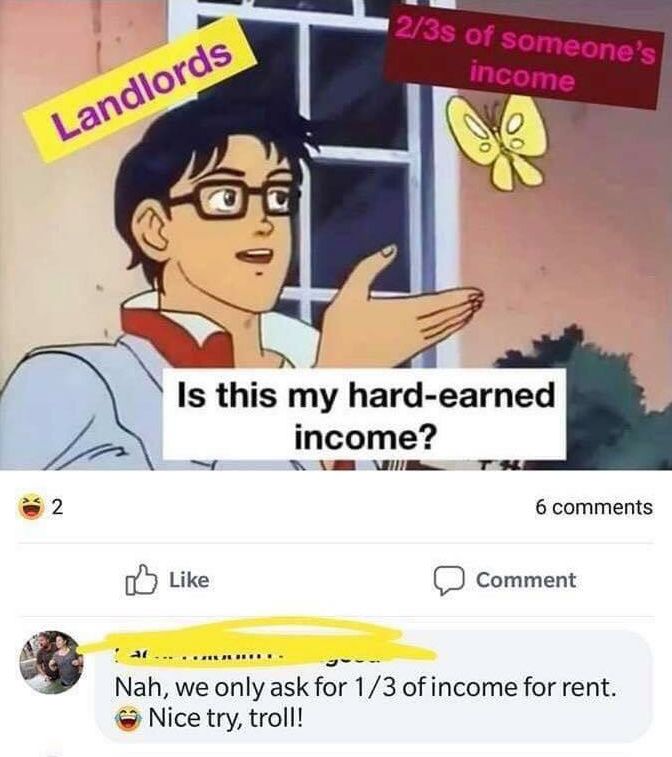
What value do landlords produce? They just own something and sit on it. What a scam

I just got back from a work trip with this project I have the pleasure of working with, DOMA. DOMA is a platform of equitable housing - in the long term seeks to decommodify housing by providing a structure for cooperative ownership; it's similar to housing cooperatives and community land trusts. The general idea is members - both renters and investors - contribute money that is then used to purchase property. By living in a DOMA property you gradually accrue shares in the DOMA platform as a whole, until residents collectively own the apartments (and by extension, key parts of the city) they live in.
But DOMA still has to contend with, pay tribute too, the fact that housing is an investment and basically must be treated as such because of the enormous costs it requires to participate. So we have to figure out a strategy for getting enough money to get this thing off the ground. So there is a practical need to design the platform to play by the rules of capital. Investors want their investment to grow over time. This is generally at odds with the platform's desire to expand renters' ownership over the properties. The problem is that capitalism is the ultimate trap, recuperating damn near all resistance against it. I think we've figured out a pretty good design now, but there is always a lurking fear that capital may find a way to capture it as well.
Meta-scams and the way forward
So we should step back and ask:
What are the objectives of meta-scamming? Can meta-scams ever completely upend their target scam? I'm not sure that they can. They ultimately offer some concession to the target scam by relying on it to function...I would say more conservatively that their role is to provide something of a foothold; a bit of stabilization.
The resolution of a trap is often to not resist; but if we consider the exogenous environment of the trap, another option is for another force to release the trap or destroy it altogether. Thus we may have another failure mode where the target scam is simply replaced with a different, stronger one, or modified such that the old exploit is obsolete. But the gap from the resulting transition may provide some maneuverability or opportunity for a more substantial change.
In the end, we need new kinds of infrastructure that make it harder for oppressive scams to operate and take root. We need infrastructures that increase autonomy and the capacity for us to influence the decisions that affect us, so one day we may live scam free. But for now, happy scamming.
Thank you
@frnsys
Thanks to Kira, Maksym, and Francesco for their comments.
Hi, thank you for inviting me to talk, I'm grateful for the opportunity. I'm Francis, I primarily work as a software engineer and game designer. A lot of my work involves developing models and simulations for complex systems and games for understanding those systems. I'm also currently a fellow at the Jain Family Institute. This talk is focused more on projects and interests outside of that. The topics here are very much a work in progress, and this is the first time I'm speaking about them publicly, so feedback is very much appreciated.